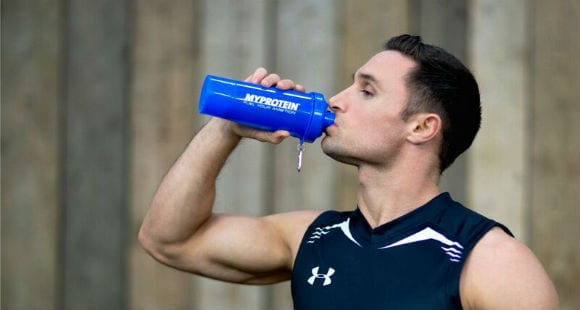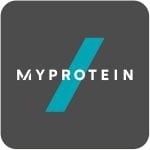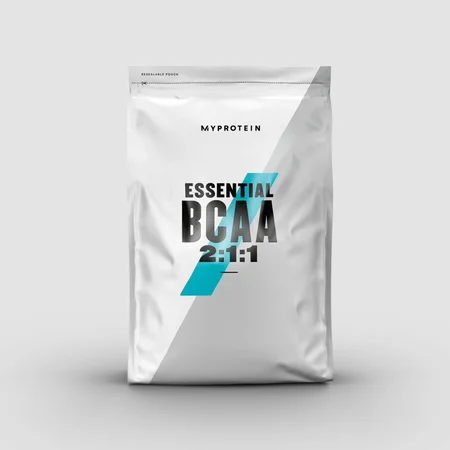

How much protein do I need to achieve an optimal physique?
This is the age-old question for athletes! In fact it is well-known that athletes supplement dietary protein to repair and rebuild muscle following intense training bouts or athletic events. Moreover a recent extensive analysis of all studies conducted to near present found that collectively protein supplementation notably increases muscle mass and strength over those who do not supplement (Cermak et al. 2012). It has also been known since the 1980s from several scientists (Wilson and Wilson 2006) that the total protein needs for endurance and resistance trained athletes are 50 to 175% greater than those who sit on the couch all day (sedentary)! This amounts to a whopping 1.2 to 2.0 grams of protein per kg of bodyweight for the hard working athlete!
Many individuals will say that once a threshold of 1.2 to 1.7 grams of protein has been reached that any additional consumption beyond this is simply wasted or used as fuel. However, the major problem with these statements is that it assumes the only role of protein is to stimulate protein synthesis and thus build muscle. If we assume this is the only role then these values for total daily needs may be correct. In fact it appears that 20-40 grams of protein per meal maximizes protein synthesis (Moore et al. 2009). Thus if an 80 kg individual eats 30 grams of protein each meal for 5 meals they will have consumed 150 grams of protein or nearly 2 grams of protein per kg of bodyweight. Theoretically this should optimize their protein needs.

However two recent ground-breaking studies from Dr. Jose Antonio call into question this contention. In the first study Dr. Antonio and his lab (2014) divided subjects into two groups. The first received a true very high protein diet (4.4 g/kg/d) and or the recommended amount for athletes (1.8 grams per kg / d) . The subjects were placed on a maintenance-training program. This means that the resistance training itself was not difficult enough to cause increases in muscle mass or strength. Under these conditions over consuming protein did not lead to any fat or muscle gain over the normal protein group.
In the second study Dr. Antonio’s group (2015) gave subjects a heavy resistance training program meant to increase muscle mass. He divided subjects into a high protein group (3.4 grams of protein per kg of bodyweight) and a normal group (2.0 grams per kg of bodyweight).
He found that while both groups gained the same average amount of muscle (1.5 kg) after 8 weeks, that the high protein group lost nearly two kg of fat mass, while the normal group lost no fat! This means that while the recommended 2.0 grams of protein per kg of bodyweight may optimize muscle mass. However it appears that a higher amount may be needed to maximize proteins effects on fat loss.

In conclusion, past research has shown that supplementing with protein is very beneficial for gaining muscle (Cermak et al. 2012). While I recommend a minimum of 1.2 to 2.0 grams of protein per kg of bodyweight daily there is now evidence to show that more can serve a benefit at times. First if you are seeking to add in additional calories but not gain additional fat, then realize that protein may be beneficial in this scenario as it is very difficult to gain fat by consuming extra protein.
This was supported by Dr. Antonio et als. (2014) initial study. The second condition is when your goal is to gain muscle, while losing fat at the same time during an intense training protocol (Antonio et al. 2015). Specifically, during hard intense 4-8 week training phases it may be beneficial to raise protein above the general recommended upper limit of 2.0 grams per kg of bodyweight.

- Antonio, J., Peacock, C. A., Ellerbroek, A., Fromhoff, B., & Silver, T. (2014). The effects of consuming a high protein diet (4.4 g/kg/d) on body composition in resistance-trained individuals. Journal of the International Society of Sports Nutrition, 11(1), 19.
- Antonio, J., Ellerbroek, A., Silver, T., Orris, S., Scheiner, M., Gonzalez, A., & Peacock, C. A. (2015). A high protein diet (3.4 g/kg/d) combined with a heavy resistance training program improves body composition in healthy trained men and women–a follow-up investigation. Journal of the International Society of Sports Nutrition, 12(1), 1-9.
- Cermak, N. M., de Groot, L. C., Saris, W. H., & van Loon, L. J. (2012). Protein supplementation augments the adaptive response of skeletal muscle to resistance-type exercise training: a meta-analysis. The American journal of clinical nutrition, 96(6), 1454-1464.
- Moore, D. R., Robinson, M. J., Fry, J. L., Tang, J. E., Glover, E. I., Wilkinson, S. B., … & Phillips, S. M. (2009). Ingested protein dose response of muscle and albumin protein synthesis after resistance exercise in young men. The American journal of clinical nutrition, 89(1), 161-168.
- Wilson, J., & Wilson, G. J. (2006). Contemporary issues in protein requirements and consumption for resistance trained athletes. J Int Soc Sports Nutr, 3(1), 7-27.










